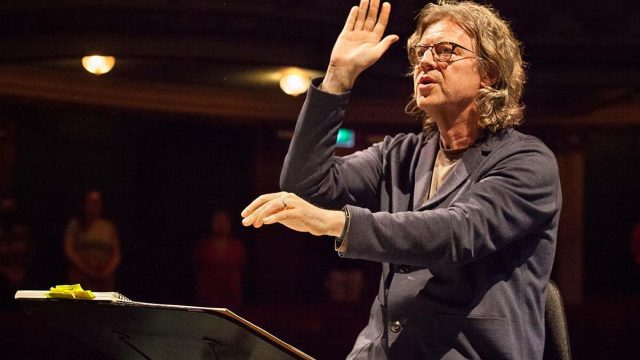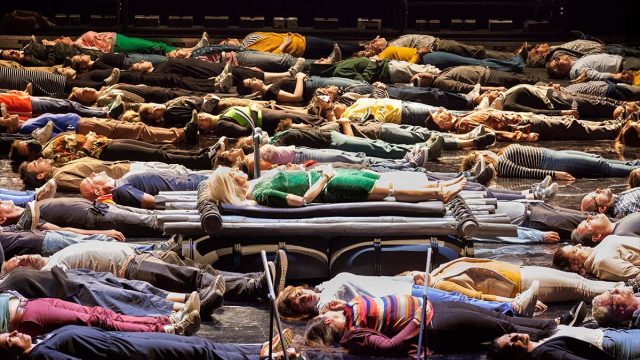Koen Kessels began his career as assistant conductor at Opera Ballet Flanders more than thirty years ago, and now conducts productions in the most prestigious opera houses all over the world. He is music director of The Royal Ballet in London and rarely stays in Belgium, but for The Convert he likes to go to where it all started: the opera in Antwerp. It feels like coming home', he says. "I have had many opportunities here and know the place well. For the project with Wim, I had to reschedule my schedule, but I really wanted to do it. It has been a very emotional choice."
Conducting a new composition is not an obvious task, but Koen has often taken the musical lead in contemporary creations. "I have always been fascinated by the creative process of composers," says Koen. "As a musician, you get a score with bullet points, but that is only a code in which the musical ideas of a composer are translated. I also want to know why a work is ultimately written down in that way. With new compositions, you can experience this process at close quarters. If I want to understand the great repertoire, I want to be able to follow contemporary composition processes, to get a feel for how a composer experiments, discovers and pushes the boundaries.
It is therefore no surprise that Koen was burning with curiosity when his friend Wim's brand new score arrived in the mail. I immediately started to organise the music. It strikes me that Wim has written very freely, he embraces the musical language he likes to use and he has followed his heart. You can hear and see that Wim is connected to jazz and Motown, he uses without hesitation elements from the world he knows as a musician and percussionist. His opera is meticulously structured, yet feels very organic and intuitive. Wim is not concerned with the framework in which he is expected to compose', says Koen.

